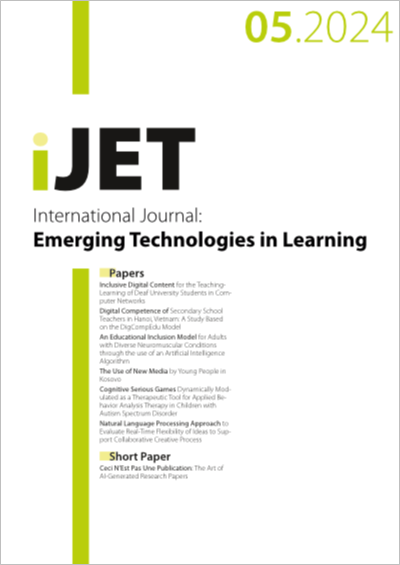Inclusive Digital Content for the Teaching-Learning of Deaf University Students in Computer Networks
DOI:
https://doi.org/10.3991/ijet.v19i05.49183Keywords:
Engineering education, Digital inclusion, Sign language, Deafness, Computer networks, Electronic booksAbstract
Inclusive education recognizes and values the diversity of students, guaranteeing their development, participation, and learning within the same classroom. However, this form of social and academic inclusion requires extra effort from teachers and educational institutions. This project, aimed at the deaf community, focused on transmitting in their native language, elementary knowledge of computer networks, which is indispensable in this technological age. Specialized teachers selected the content of the topic of study and proposed a methodology for creating new signs with the participation of deaf telecommunications engineering students and professional interpreters, who adequately transmitted the concepts from one language to another. The educational content created in sign language was organized in an electronic book to facilitate access to the deaf student community. The final product was evaluated in four aspects by deaf people and interpreters, obtaining a positive evaluation by most respondents. In conclusion, the importance of developing this type of inclusive pedagogical support tool aimed at university-level students with disabilities is highlighted.
Downloads
Published
How to Cite
Issue
Section
License
Copyright (c) 2024 J. Moreno-Acosta, Francisco J. Velandia N., A. Villamizar Pedraza

This work is licensed under a Creative Commons Attribution 4.0 International License.



